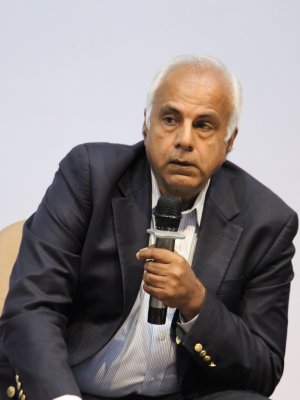 |
The 5th International Economics Conference - 2019 on the theme of “Economic Growth and Sustainable Development: Emerging Trends” was organized on November 15-16, 2019. Sri. K.R. Viju Parameshwar, Former President & CEO, Kluber Lubrication India Private Limited was the Chief Guest to the Valedictory Session. In his valedictory address, Mr. Parameshwar raised concerns on the current macroeconomy, suggested the possible policy actions for development and also predicted the future trends as well. He reiterated the statement by Milton Friedman “business of business is to make profit. Shareholder return is sole aim of business and hence business is materialistic”. The speaker was apprehensive that wage inequality was increasing, and more could be achieved only if the country is less unequal. Inequality reduces growth, undermines democracy and creates deceleration in public investment. Mr. Parameshwar ponder upon the measures to improve the economy scenario were implement social safety nets, government intervention to limit monopoly, revival of liberal Keynesian model, bring stakeholder welfare as focus of business, and capital gains to be taxed fairly. Further, he presumes that technological disruptions that are underway will affect income at bottom line. Hence, re-skill and upskill the workforce is required for sustainability.
Dr. H. Gayathri, Deputy Director, SDMIMD, presided over the function. Dr. B. Venkatraja, Conference Chairperson, proposed vote of thanks.
|